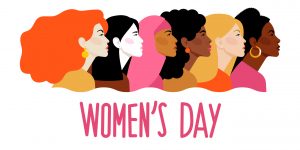Introdução
🌍 No dia 8 de março, o mundo inteiro para para reconhecer uma luta que nunca deveria ter sido necessária. O International Women ’s Day não é apenas uma data no calendário — é um lembrete poderoso da resistência, da coragem e das conquistas de mulheres que desafiaram expectativas e mudaram a história. 💜
Desde o início do século XX, mulheres em diversas partes do mundo enfrentaram barreiras impostas pela sociedade, exigiram seus direitos e abriram caminho para as conquistas que temos hoje. Mas o progresso não acontece apenas nos grandes palcos da história — ele é construído todos os dias por aquelas que se recusam a aceitar limites, que desafiam o impossível e que reescrevem o futuro com cada passo que dão.
Neste artigo, mergulhamos na trajetória de algumas dessas figuras extraordinárias que não pediram permissão para mudar o mundo — elas simplesmente o fizeram. 🚀✨
📖 Aqui você encontra…
Nível:
B1
Objetivo:
Expandir o vocabulário relacionado a igualdade, conquistas femininas e impacto histórico, além de aprender sobre figuras inspiradoras no Dia Internacional da Mulher.
Tópicos gramaticais abordados nesse texto:
- Past Simple: Para narrar eventos históricos e conquistas, como em “Marie Curie became the first woman to win a Nobel Prize.”
- Present Perfect: Para conectar ações passadas com o presente, como em “Her writings have inspired generations.”
- Passive Voice: Para enfatizar ações e impacto, como em “One quiet act of defiance made Rosa Parks an icon.”
- Relative Clauses: Para adicionar informações sobre figuras históricas, como em “A 23-time Grand Slam champion, Serena Williams didn’t just dominate tennis — she redefined what it means to be a female athlete.”
- Modals of Advice and Possibility: Como “Change often starts with the courage of one person.”
- Expressions of Time: Como “at a time when,” “throughout her career,” e “still being written,” que ajudam a contextualizar os eventos na linha do tempo.
A Legacy of Strength and Change
Every year on March 8th, the world stops to acknowledge the impact of women throughout history. But International Women’s Day is not just a celebration — it is a reminder of the fight for equality, recognition, and opportunity. This date was not chosen at random; it was born from the voices of working women who, in the early 20th century, demanded better conditions, fair wages, and the right to vote. Their courage laid the foundation for the rights many have today — and the rights that are still being fought for.
But progress is not just made by movements. It is built by women who dared to challenge expectations, who refused to accept limitations, and who reshaped entire fields of knowledge. Today, we honor not just the struggles, but the resilience, intelligence, and defiance of women who changed history.
Marie Curie: Breaking Barriers in Science
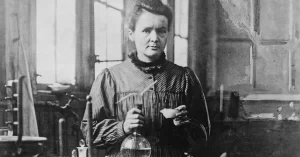
“Nothing in life is to be feared; it is only to be understood. Now is the time to understand more, so that we may fear less.”
At a time when women were barely allowed in scientific institutions, Marie Curie became the first woman to win a Nobel Prize — then won it again in a different field. She pioneered research on radioactivity, paving the way for advancements in medicine and physics. Her legacy is not just in her discoveries but in proving that intellect has no gender.
Maya Angelou: The Power of Words
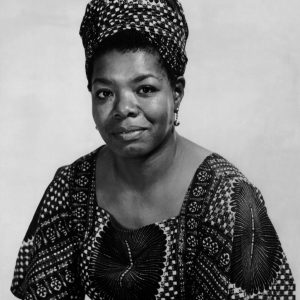
“Each time a woman stands up for herself, without knowing it possibly, without claiming it, she stands up for all women.”
Poet, activist, and voice of resilience, Maya Angelou turned pain into poetry and oppression into power. Her writings on identity, racism, and womanhood have inspired generations. She showed the world that words could be a form of resistance and that telling one’s story is an act of defiance.
Malala Yousafzai: The Fight for Education

“I raise up my voice — not so I can shout, but so that those without a voice can be heard.”
Shot for daring to go to school, Malala Yousafzai did not let violence silence her. Instead, she became a global advocate for girls’ education, proving that knowledge is the strongest weapon against oppression. At just 17, she became the youngest Nobel Prize laureate, reminding the world that change often starts with the courage of one person.
Rosa Parks: The Power of Saying No
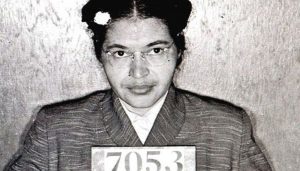
“You must never be fearful about what you are doing when it is right.”
One quiet act of defiance — refusing to give up her seat on a segregated bus — made Rosa Parks an icon of the Civil Rights Movement. But her strength was not in a single moment; it was in her lifelong commitment to justice, proving that courage is often found in the refusal to accept the unacceptable.
Amelia Earhart: Defying Gravity and Expectations
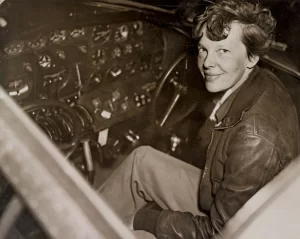
“The most difficult thing is the decision to act. The rest is merely tenacity.”
At a time when aviation was a man’s world, Amelia Earhart soared past expectations, becoming the first woman to fly solo across the Atlantic. Her adventurous spirit and fearless ambition shattered the belief that some dreams were “too big” for women.
Serena Williams: Changing the Game in Sports

“The success of every woman should be the inspiration to another. We should raise each other up.”
A 23-time Grand Slam champion, Serena Williams didn’t just dominate tennis — she redefined what it means to be a female athlete. Facing racism, sexism, and criticism throughout her career, she proved that strength, determination, and motherhood can coexist with excellence. She has inspired a new generation of female athletes to demand equality in sports.
Women’s History Is Still Being Written
International Women’s Day is not about “congratulations”—it is about recognition, progress, and the refusal to accept limits. The women in history books did not wait for permission to lead, create, and change the world. Neither should we.
Conclusion
🚀 Who inspires you? Share their story and let’s continue the conversation. And if your next step is to break language barriers and expand your world, let’s do it together. Start learning English with us today!
Bora de quiz?
Spend a Day Fighting and We’ll Tell You a Right You Deserve!
You wake up and realize something is wrong. What is it?

You must fight an enemy. Who do you choose?

You are out of energy. How do you recharge?

Someone insults you in public. What do you do?

You’re running late in the morning. What’s your strategy?

What’s your battle soundtrack?

At the end of the day, what is your greatest weakness?

If you could choose a legendary weapon, what would it be?









